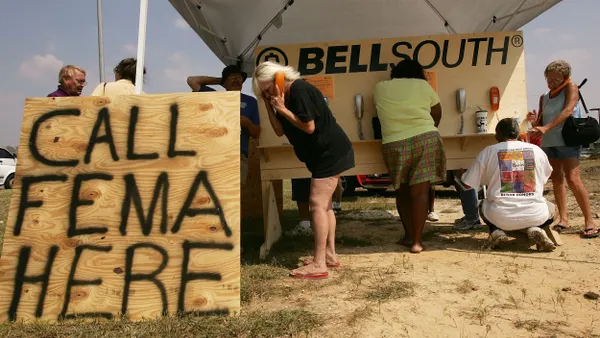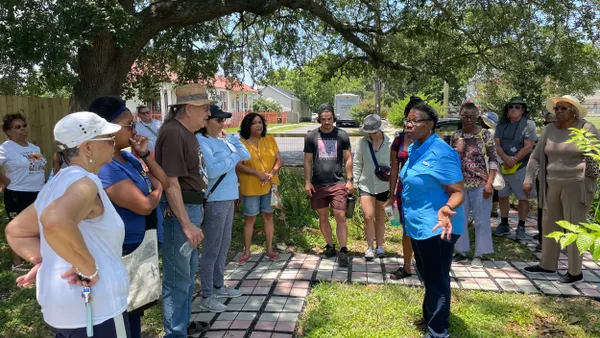Dive Brief:
- U.S. communities can apply until Jan. 17, 2025, for financial and technical support to collect local heat data next year, the National Oceanic and Atmospheric Administration announced Friday.
- Ten communities will each receive $10,000 and assistance from the Center for Collaborative Heat Monitoring, one of two heat-resilience research centers established by the Biden administration in May.
- CCHM will equip communities “with the knowledge to make informed and equitable decisions about heat resilience, while engaging community members and community-based organizations throughout the process,” NOAA Administrator Rick Spinrad said in a statement.
Dive Insight:
After scientists named 2023 the world’s hottest year on record, this past summer brought Earth its hottest recorded summer. In July, United Nations Secretary-General António Guterres called for countries to address the rising danger of extreme heat.
Mapping urban heat islands is increasingly urgent as climate change drives climbing temperatures, the Natural Resources Defense Council says. The data yielded can help lawmakers and advocates identify particularly vulnerable areas and develop equitable plans for addressing heat risk. Urban heat island data has informed an initiative to apply a cooling coating to roadways in Raleigh, North Carolina, and patient education efforts at healthcare facilities in Durham, North Carolina, NRDC says.
Communities that participate in CCHM’s upcoming program can collect data on ambient temperature, particulate matter and wet bulb globe temperature, which indicates expected heat stress on the human body in direct sunlight. Communities can use the $10,000 stipend for expenses such as coordinators or organizers, food and water for volunteers working on hot days and childcare for community members who could not otherwise participate.
While 2025 will be the first summer that CCHM spearheads this local heat data collection campaign, the firm CAPA Strategies has carried out similar NOAA-supported work for the last eight years in more than 80 communities. CAPA Strategies provides climate-related data analytics and decision support tools to communities around the world, and is partnering with CCHM on the upcoming heat monitoring initiative.
2025 also marks the expansion of the heat monitoring program to include rural communities, tribal nations and indigenous communities.
Communities participating in this year’s campaign can be paired up with a mentor community if they submit an optional expression of interest by Nov. 15. CCHM is offering informational webinars on Nov. 21 and Dec. 4 as well as office hours with its team throughout November and December.
CCHM expects to also support 10 communities each in 2026 and 2027.











